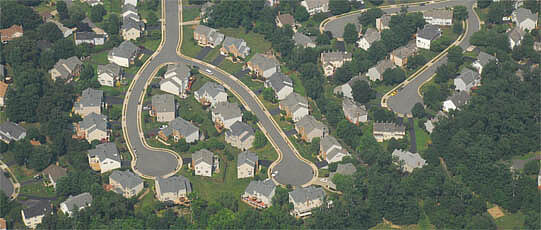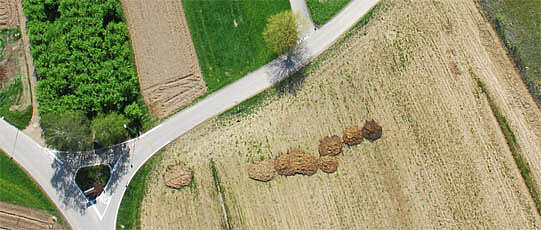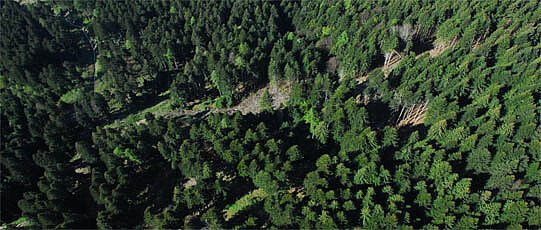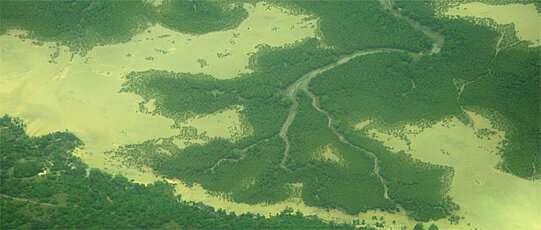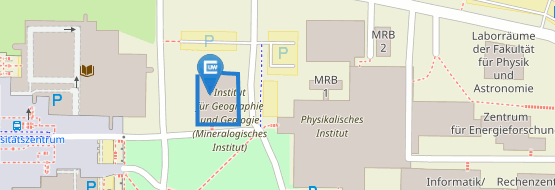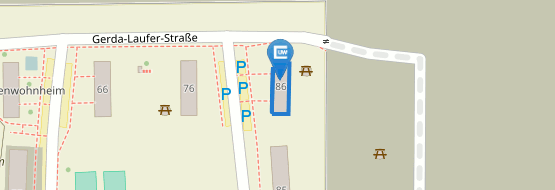Master "EAGLE - Applied Earth Observation and Geoanalysis 120 ECTS"
In many ways, the application of earth observation and the use of geoinformation is both a fundamental and integrative methodological component of geography. This approach, which combines the geosciences, biosciences, and related neighbouring disciplines in interdisciplinary research and teaching, contributes to a better understanding of the system earth and its use by humans. Alongside the fieldwork methods of those disciplines, for example in geography and geology, methods of remote sensing (satellite or airborne imaging techniques) play an increasing and important role allowing repeated near-surface capture of spectral properties of the earth surface and thus spatial processes as well as the dynamics of both the natural environment including its geo- and biosphere and its anthropogenic overprint. The use of geoinformation technology (such as statistical modelling) enables the aggregation and analysis of the results of earth observation and in-situ information. However, only a professional use premised on basic knowledge of geography, geo- and biosciences or their neighbouring disciplines (such as environmental science, forestry and agricultural sciences or hydrology) of these methods can support an exploitation of existing resources (especially land surface, water, flora, fauna, rock and soil) that has been attuned to efficiency and sustainability.
The EAGLE degree programme provides students who possess appropriate basic knowledge with exactly the special skills and abilities that are necessary to purposefully use and combine methods of remote sensing, taking into account other sources of geoinformation for the solution of challenging interdisciplinary scientific tasks. The fundamental objective of the EAGLE degree programme therefore is to impart the ability to apply remote sensing in a scientifically substantiated and application-oriented way for managing a sustainable use and development of the habitat earth as well as its’ resources (such as renewable agriculture raw materials, biodiversity, soils or mineral resources as well as climate) and at the same time autonomously and purposefully implement and utilise the observation of the earth with extensive knowledge of the data, algorithmic approaches and technical implementation measures.
After the successful completion of the EAGLE study programme with the degree Master of Science, the students possess the following competencies:
- Ability to grasp relationships and developments in the specialist field ‘Applied Earth Observation and Geoanalysis’
- Deepened knowledge about connections within the discipline and with related disciplines
- Growth in scientific knowledge due to the realistic exploitation of the potentials of applied earth observation and the analysis of geoinformation
- The in-depth specialist knowledge that is necessary for the transition to professional positions
- Ability to independently implement decision-making tools relevant to planning based on remote sensing and further geoinformation for the management, sustainable use and development of natural resources as well as environment issues
Subject-specific provisions, module catalogues, list of modules and study plans
The subject-specific provisions (FSB) specify the general academic and examination regulations (ASPO) regarding this degree programme and inform about its aims, skills and learning achievements, beginning and structure of the study programme, standard length, application and admission to the programme, and calculation of both the degree subject grade and the overall grade.
The list of modules is the most important and central document for students and prospective students. It provides information about the individual units and subsections, their ECTS credits, associated modules and module components as well as their assessments. The list of modules can be located in the annex to the subject-specific provisions at the end of the paragraphs.
Study plans are exemplary recommendations for the concrete course of study. They are created based on the list of modules!

![[Translate to Englisch:] Studium](/fileadmin/_processed_/0/6/csm_header_studium_2df042456b.jpg)
